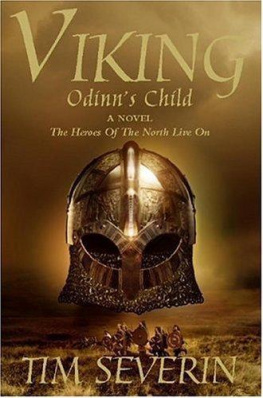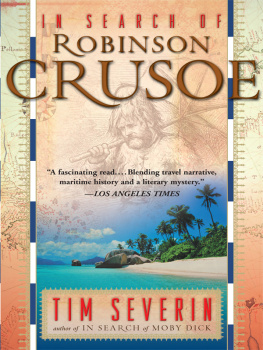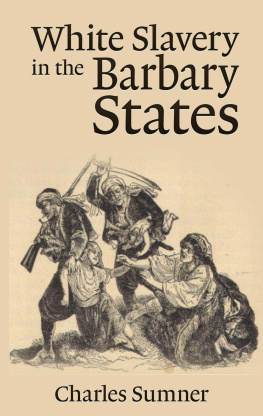


ONE

THEY ARRIVED an hour before daybreak, forty men in two boats, cotton rags tied around the shafts to muffle the creak of the oars, and the rowers dipping their blades neatly into the sleek blackness of the sea. The boats were of local design, stolen from a fishing port a week earlier, and if a coast watcher had spotted their approach, the sentinel might have mistaken them for fishermen coming home early from the nights work. Certainly the raiders were confident that their mother ships had been invisible from the cliff tops for they had waited patiently over the horizon, hovering with sails lowered until they had the conditions they wanted: a calm sea and a thin veil of cloud to diffuse the starlight. There was no moon.
The oarsmen eased stroke as the two boats glided into the small cove. They heard the muted surge and backwash of small waves lapping the shingle, then quiet splashes as the bow men jumped out and held the boats steady while the raiders stepped knee-deep into the shallows. The water was warm for this time of year, yet it was far colder than the seas to which they were accustomed. Many of the raiders were barefoot, and as they began their march inland, the callused soles of their feet felt the change from smooth beach pebbles to tussocky grass, then the soft squelch of a boggy stream bed. A smell of rotting vegetable matter came up on the humid summer air. Ahead of them, a nesting marsh bird burst out of the reeds and flew away with a sudden clatter of wings.
Ten minutes of easy climbing along the stream bed brought them to the watershed. From a patch of level ground, they looked down the far slope at their goal. The village was less than half a mile away, a low cluster of dark roofs etched against the broad glimmer of the great bay which thrust far into the contorted and rocky coastline, providing a vast but empty anchorage. There was not a light to be seen, and still there were no warning shouts.

THE RAIDERS descended the slope, moving faster now, and were at the outskirts of the village before the first dog barked. Whos there? called a womans voice from one of the turf-roofed cabins. She spoke in the soft fluid tones of the local speech. Go back to sleep, woman, one of the raiders replied in her own language. There was a short pause as the men stopped and listened. The silence returned, except for the muted growling of the suspicious dog. The intruders moved forward quietly, spreading along the single main street.
At the very centre of the village, in one of the few stone-built houses, Hector Lynch opened his eyes. He lay in the pitch darkness, wondering what had woken him. On calm nights it was sometimes so silent that you could hear the distant boom of waves breaking on the rocks in the aftermath of a heavy swell as the Atlantic gnawed steadily at the granite coast. But this night there was something melancholy and stifling about the lack of sound. It was as if the village had been smothered in its sleep, and was dead. For almost as long as Hector could remember, he and his sister, Elizabeth, had been coming here each summer to study at the Franciscan friary on the island at the harbour mouth. Their mother insisted that he and Elizabeth, his junior by two years, learn Latin and the tenets of her own Catholic faith from the Grey Friars. Her family were Spanish, shipowners from Galicia, and for generations they had engaged in the wine trade with this remote corner of south-west Ireland where she had met and married her husband. He was of minor Protestant gentry impoverished in the recent civil war and more interested that his children learn practical and domestic skills to help them prosper in the Protestant hierarchy which now ruled the land. The mixed ancestry of their children showed in the sallow skins, dark eyes and jet-black hair which Hector and Elizabeth had inherited from their mother at fifteen the girl was on the cusp of becoming a real beauty and in their fluency of languages. They used English when speaking to their father, Spanish with a Galician accent when alone with their mother, and Irish among their summer playmates from the poorer fishing families.
Hector turned on his side and tried to go back to sleep. He hoped that this was the last summer that he and Elizabeth would spend in this isolated backwater. In January their father had died, and after his funeral their mother had hinted to her in-laws that she was thinking of returning to Spain, taking her children with her. Hector had never visited Spain indeed he had never been farther than the city of Cork and he had a seventeen-year-olds longing to see more of the world. He nursed a secret and romantic belief that his own name, Lynch, was an omen because the Irish version, OLoinsigh, meant seafarer or wanderer.
He was thinking about the possibility of a trip to Spain, and what it would be like, when he heard the first pistol shot.
It was the signal for the raiders to begin breaking down doors and wrenching open shutters. Now they made as much noise and racket as possible. They yelled and whooped, banged cudgels against doorposts, kicked over stacks of farm tools. In response every dog in the village began to bark furiously and somewhere a donkey brayed in panic. Inside the cabins the occupants were stupefied by the sudden din. Many slept on beds that were little more than piles of dried bracken covered with blankets on the beaten earth floor, and they were still getting to their feet groggily when the intruders burst in among them. Children clung to their mothers, babies began to wail, and the adults were disoriented and dazed as the raiders began to herd them out of doors. Those who resisted did so from confusion and weariness rather than a sense of defiance. A slap across the face or a well-aimed kick in the backside quickly changed their minds, and they stumbled out to join their neighbours in the street.
The first flush of dawn gave sufficient light for the raiders to make their selection. They spurned those who were bent with age and hard labour or obviously misshapen. A young man with a badly twisted leg was rejected, so too was a halfwit who stood helplessly, his head turning from side to side as he tried to understand the mayhem that surrounded him. Infants were also discarded. One raider casually pulled a baby of less than six months from the mothers arms, and handed the child to the nearest crone as if it was an unwanted parcel. The mother he pushed into the chosen group of able-bodied men, women and their children who had to appear at least five years old if they were to qualify.
But not everyone was caught. There was a flurry as a figure was spotted running away down the road that led inland. A shouted order, and the two raiders who had set off after the fugitive turned back to rejoin their companions. The running man was on his way to fetch help, to alert the local militia, but the invaders knew the village was too isolated for assistance to arrive in time. So they continued their selection with calm efficiency.
Hector scrambled out from his bed and was still pulling on his breeches when the door to his room slammed open. Someone in the passageway held up a lantern so that the light shone full on him. Behind the light he made out the shapes of three men who thrust their way into the room. He caught a brief glimpse of a mustached face as heavily muscled arms reached out towards him. He twisted to one side, trying to evade the grasping hands, but blundered into another man who had circled around behind him. Someone clasped him around his waist, and his nostrils were filled with the smell of sweat and some sort of exotic scent. Hector thrashed urgently from side to side, trying to break free. Then he jerked his head backward, as hed done when tussling with friends in boyhood games, but viciously this time. He felt a satisfying thump as his skull struck his attacker full in the face. There was a grunt of pain, and the grip relaxed enough for him to twist free. He made a dash for the door, but one of the other men stepped across to block his escape. Once again he was held, this time with a stranglehold around his neck. Choking, he drove his elbow into his assailants ribs, only to have a hand clamped over his mouth. He bit down fiercely. He heard someone swear, and a growled comment. He realised that the men trying to pin him down were unwilling to harm him, and this gave him hope. There was the bite of cord as someone tried to lash his wrists together, and again he foiled them, slipping his hand away from the loop. He made another dash for the door, only to be tripped this time and he fell sprawling, crashing painfully against the wall. As he tried to get back on his feet, he looked up and saw that the man with the lantern had been standing apart from the fray, holding up the light so that his companions could do their work. At last Hector could get a clear view of his attackers. They were swarthy-skinned and dressed in baggy pantaloons and workaday seamens coats. The man with the lantern had a long cloth, patterned with red and white checks, wrapped several times around his head. Hector blinked in amazement. It was the first time that he had seen a turban.
Next page













